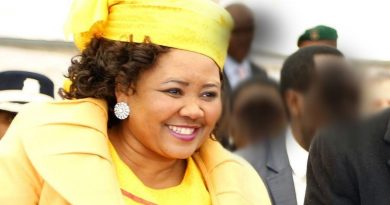Vuntut Gwitchin citizen takes challenge of residency requirement to Supreme Court of Canada
A Vuntut Gwitchin citizen is taking her precedent-setting legal challenge of her First Nation’s residency requirement for councillors to the country’s highest court.
Cindy Dickson filed an application for leave to appeal to the Supreme Court of Canada last month. The court opened a file for her case on Oct. 25.
It’s the latest development in what’s become a years-long battle over the self-governing First Nation’s requirement for all elected councillors to live on settlement land, and a case that’s forced courts to examine the intricacies and interaction of Canadian and Indigenous law.
Dickson had previously tried to run for council but was barred from doing so because she lives in Whitehorse.
“It’s very difficult to go up against the government when you feel that your rights are [being] infringed upon … and it’s been hard on me, but I keep moving forward because I really feel strongly that we need some clarification so that our citizens are all treated equally,” Dickson told CBC News Oct. 28.
The First Nation had not filed a response to Dickson’s application as of Oct. 29.
Vuntut Gwitchin Chief Dana Tizya-Tramm declined an interview request. However, he previously told reporters following the Yukon Court of Appeal decision that he would bring the issue forward at the First Nation’s general assembly and allow citizens to decide what the next steps, if any, should be.
The Supreme Court of Canada only hears a small number of cases every year; it has yet to decide whether it will hear Dickson’s appeal.
Appeal court upheld requirement
Dickson brought a petition to the Yukon Supreme Court in 2019 challenging Vuntut Gwitchin’s residency requirement, arguing that it was discriminatory and violated her equality rights as laid out under the Canadian Charter of Rights and Freedoms.
The First Nation, by the time the petition was heard in court, required councillors to move to settlement land within 14 days of being elected.
The only consistently inhabited place within Vuntut Gwitchin settlement land is Old Crow, a fly-in community of approximately 260 people located roughly 800 kilometres north of Whitehorse.
Dickson argued there were numerous reasons why Vuntut Gwitchin citizens might choose or be forced to live outside of Old Crow, including the extremely limited housing and access to healthcare available in the community, and that barring them from being on council was discriminatory.
The First Nation argued among other things that it never agreed to the Charter’s applications during the negotiations of its self-government and final agreements, and that the requirement was key in preserving Vuntut Gwitchin culture and tradition.
A Yukon Supreme Court judge ruled that the Charter applied to the Vuntut Gwitchin government and found that while requiring councillors to move within 14 days was unconstitutional, the requirement for them to live on settlement land could stand.
Both Dickson and the First Nation appealed the decision to the Yukon Court of Appeal, with the Attorney General of Canada, Teslin Tlingit Council, Carcross/Tagish First Nation and the Métis Nation of Ontario joining as intervenors in the case.
The appeal court, in a split decision issued in July, found the requirement did, in fact, violate equality rights as protected by the Charter, but that it was shielded in its entirety by another section of the Charter — section 25 — that protects the collective rights of Indigenous peoples.
The decision marked the first time a Canadian court examined the intersection of section 25 and the personal rights of First Nations citizens.
8:05Yukon court validates First Nation’s right to require councillors, chiefs, to live on settlement lands
The Yukon Court of Appeal released a decision about Vuntut Gwitchin First Nation’s residency requirement for councillors last week. Elyn Jones spoke with Ryan Beaton, a Vancouver lawyer, who specializes in Aboriginal law. He is closely watching the case. 8:05
‘We should all be treated equally’
Dickson told CBC News she was escalating the case to the Supreme Court of Canada because she didn’t agree with section 25 being used as a shield “against its own citizen.”
“I believe that as an Indigenous person, I have both individual and collective rights,” she said, sharing a story of a cousin who learned how to hunt by going out onto the land with different people and learning different techniques.
“To me, that’s a perfect example of a collective and individual right, because as hunters out on the land, we own it together, that’s a collective, but [my cousin] learning how to hunt and in his own ways, [that was] his own individual right,” she said.
Dickson added she was “personally not benefitting” monetarily from the challenge, and that while she’s received messages of support from other citizens and First Nations, she’s also seen opposition and misunderstandings about her motivations as well.
“It is really scary, but I just wanted to try to do something because I just felt very strongly that we should be able to organize our government so that all of our citizens have a voice,” she said of choosing to continue to pursue the case.
“I just think that because the majority of our citizens live off settlement land for various reasons … we should all be treated equally and all be heard.”

